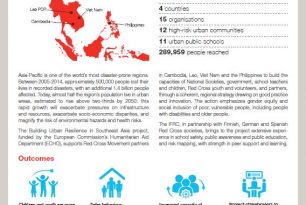
This one pager offers the a regional overview of the Building Urban Resilience in Southeast Asia, a joint initiative of the IFRC and ECHO.
![]()
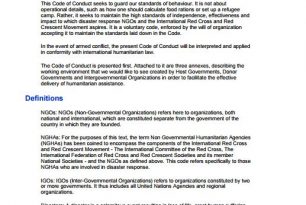
This Code of Conduct seeks to guard our standards of behaviour. It is not about operational details, such as how one should calculate food rations or set up a refugee camp. Rather, it seeks to maintain the high standards of independence, effectiveness and impact to which disaster response NGOs and the International Red Cross and Red Crescent Movement aspires. It is a voluntary code, enforced by the will of organization accepting it to maintain the standards laid down in the Code.
![]()

The International Federation of Red Cross and Red Crescent Societies (IFRC) shares the present update on its contributions to date towards the ASEAN Agreement on Disaster Management and Emergency Response (AADMER) Work Programme for the years 2016–2020. The IFRC remains committed to develop a specific plan together with ASEAN to detail its future commitments towards the AADMER Work Programme.
![]()
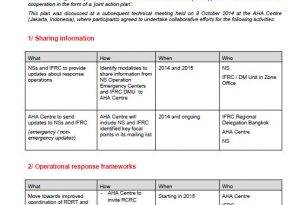
In September 2014, representatives from Southeast Asia Red Cross and Red Crescent (RCRC) National Societies (NS) gathered in Bangkok as part of the Community Safety and Resilience Forum to enhance their integrated approach for community resilience building and strengthen the regional cooperation among and between members. Participants included Department Heads for Disaster Management, Health and Organizational Development as well as a representative from the ASEAN Humanitarian Assistance (AHA) Centre.
During technical discussions, it was agreed that IFRC, RCRC National Societies and the AHA Centre should continue building on the positive collaboration undertaken so far and explore opportunities for further technical cooperation in the form of a ‘joint action plan’.
![]()
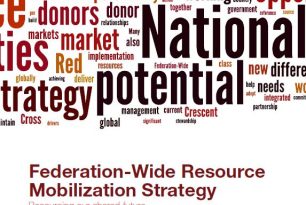
This Federation-Wide Resource Mobilization Strategy (the Strategy) aims to help the Red Cross and Red Crescent (RCRC) National Societies (NS) around the world to build on our strengths and competitive advantages in resource mobilization, while eliminating practices that undermine national and global resource mobilization capacities and objectives.
![]()
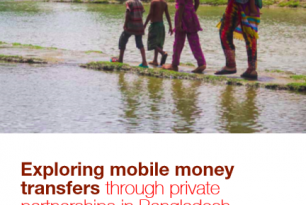
This case study extracts the lessons learned of implementing a mobile money transfer as a delivery mechanism in the context Bangladesh and the process of engaging with the private sector. Innovation and new technologies are continuously identified and explored as ways to improve CTP (Cash Transfer Programming) which creates exciting opportunities to partner with the private sector.
![]()